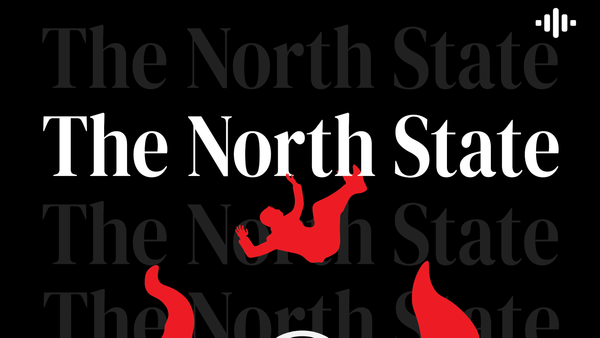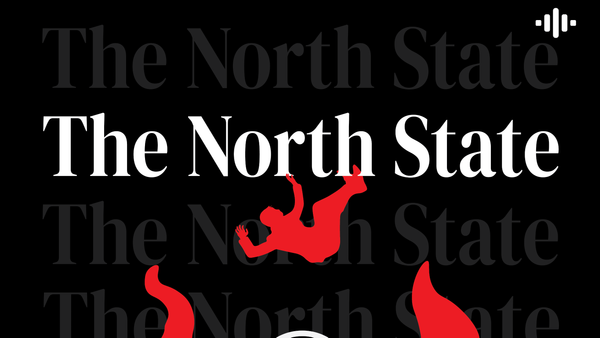Postmedia in Merger Talks with Toronto Star Owner Nordstar
Just when Canadian news media couldn't get any lower, it deploys the doomsday weapon

News broke yesterday that Postmedia, the far-right news media company owned by a US hedge fund, was in talks with Nordstar, the company that owns the Toronto Star, to finalize a merger. Postmedia has made the news lately for their financial trouble despite receiving millions in subsidies from the Canadian government. The company posted $13 million in profit for 2022, while receiving $9.9 million in government assistance. This isn’t even close to paying the $30 million a year in debt owed by the company. We all had a good laugh.
Nordstar, on the other hand, has had issues of its own. A bitter public dispute between co-owners Jordan Rivett and Jordan Bitove was resolved late last year when Bitove was set to take over TorStar as the result of an arbitration deal.
Those of us paying attention to the state of legacy news media in this country were unprepared for the sheer insult that would arise from these two, seemingly separate, states of affairs.
The non-binding details of the merger discussions that were revealed are equally distressing. The shareholders’ economic interests would split 56/44 for Postmedia and Nordstar respectively, while Nordstar would retain 65 per cent interest in Toronto Star Inc. Where the remaining 35 per cent goes was not disclosed. Bitove would be the chairman of the new company, while chief executive of Postmedia Andrew MacLeod would become CEO.
In their reasoning for the merger, MacLeod claimed news media in Canda was under an “existential threat,” while Bitove claimed “extreme risk” for newspapers in Canada. To be blunt, this is laughable. Postmedia notoriously cuts journalism jobs, while both they and TorStar swapped newspapers only to shut down the vast majority of them. A more extensive analysis of this can be found in Jeremy Appel’s piece on the subject linked below.
Echoing Appel, there’s absolutely no reason to believe that this merger deal won’t go through. Meta’s announcement to pull news for Canadian users after the passing of Bill C-18 showed that the first step towards shifting news media subsidies to the digital private sphere has failed. Meanwhile, Canada’s anti-trust apparatus approves of further consolidation by massive media companies with little-to-no pushback from any political party.
The two options by the Canadian government at this point are to either increase news media subsidies to prop up the failing Postmedia, or allow the merger to go through under the guise of more profitability. There’s even a high probability they may do both, but there’s no chance they’ll do neither.
So what’s a solution that can fix the dismal Canadian news media landscape? It’s not like you need me to quote Michael Parenti’s Inventing Reality or Noam Chomsky and David S. Herman’s Manufacturing Consent in order to explain that hawkish and blatantly right-wing capitalist domination of our news media landscape is a bad thing.
The solutions to this lie in two categories: immediate and systemic.
First, immediate solutions. If you’re reading this, I assume you’re already invested in reading independent news outlets. But please consider supporting them financially. Readership really helps, but a lot of these outlets rely heavily on memberships to continue doing good investigative journalism. In terms of outlets I recommend, here’s a short list:
Depending on your city, I would also encourage looking for news media that focuses in your local community. This is extremely crucial at a time when news media operates increasingly within the provincial, national, or international context.
Of course, this substack and others I recommend are outlets I encourage you to subscribe, read and share to support individual journalists. That’s an important point as well. Share good journalism with people who may not be as “in-the-know” as you or your politically active friends or colleagues may be.
Beyond that, unions in news media are available for resources and donations. The Canadian Freelance Union in particular is a great organization that I haven’t joined yet because of my current financial situation.
Even in the mainstream, there are moves to be made. Look back on pieces you’ve enjoyed reading that were published by the Toronto Star, Ottawa Citizen, Globe and Mail etc. over the past year or so. Find the journalist who wrote it, and follow their work specifically. There’s a high chance that further journalism layoffs will grip the industry, so keeping track of individual names and where they go will be better than subscribing to a conglomorate that pushes reactionary narratives to benefit hedge funds.
These moves will help, but they won’t fix the problem. That’s where systemic change comes in. To start, news media co-operatives are essential to transferring more power into the hands of the journalists who do the necessary reporting. Six local newspapers in Quebec were saved from shut down by turning into co-ops, and New Brunswick has its own that reports in the province. The Media Co-op is a good place to start on how co-operative news media can function in the Canadian context.
By transferring ownership of news media companies to the workers, they become much more invested in its future. This disincentivizes executive bonuses, creates a more community-centric operation, and improves quality of work. Support these co-ops and write to your favourite outlets or journalists about the possibility of forming their own outside of these giant conglomerates, or even transforming their independent outlets to a co-operative model if possible.
But it’s also necessary to recognize that the current state of news media is intertwined with the social, political and economic state of Canada and the broader capitalist world. Neoliberalism has exacerbated the issue of monopolization, solidified right-wing news media and eroded journalistic quality over the past few decades. It has affected every facet of society, and requires an all-encompassing solution to dismantle it.
The solutions to this problem are the same solutions to other consequences of capitalism. Organize in your local community. Protest politicians who sit idly by while capitalist consolidation happens. Join your local union and push them to reject the status quo. Speak out against our weak antitrust laws. Join decolonial organizations. Organize, mobilize and radicalize.
The state of Canadian news media is the worst it’s ever been. Our public broadcaster refuses to name Palestine and publishes white supremacist propaganda. The largest print news media company is actively reactionary and lookijng to subsume one of the last big outlets consistently publishing good investigative work. Waves of layoffs are decimating good jobs in the industry.
The diagnosis is dire, but there are solutions to be made in the face of it. It just requires organization on our part.






